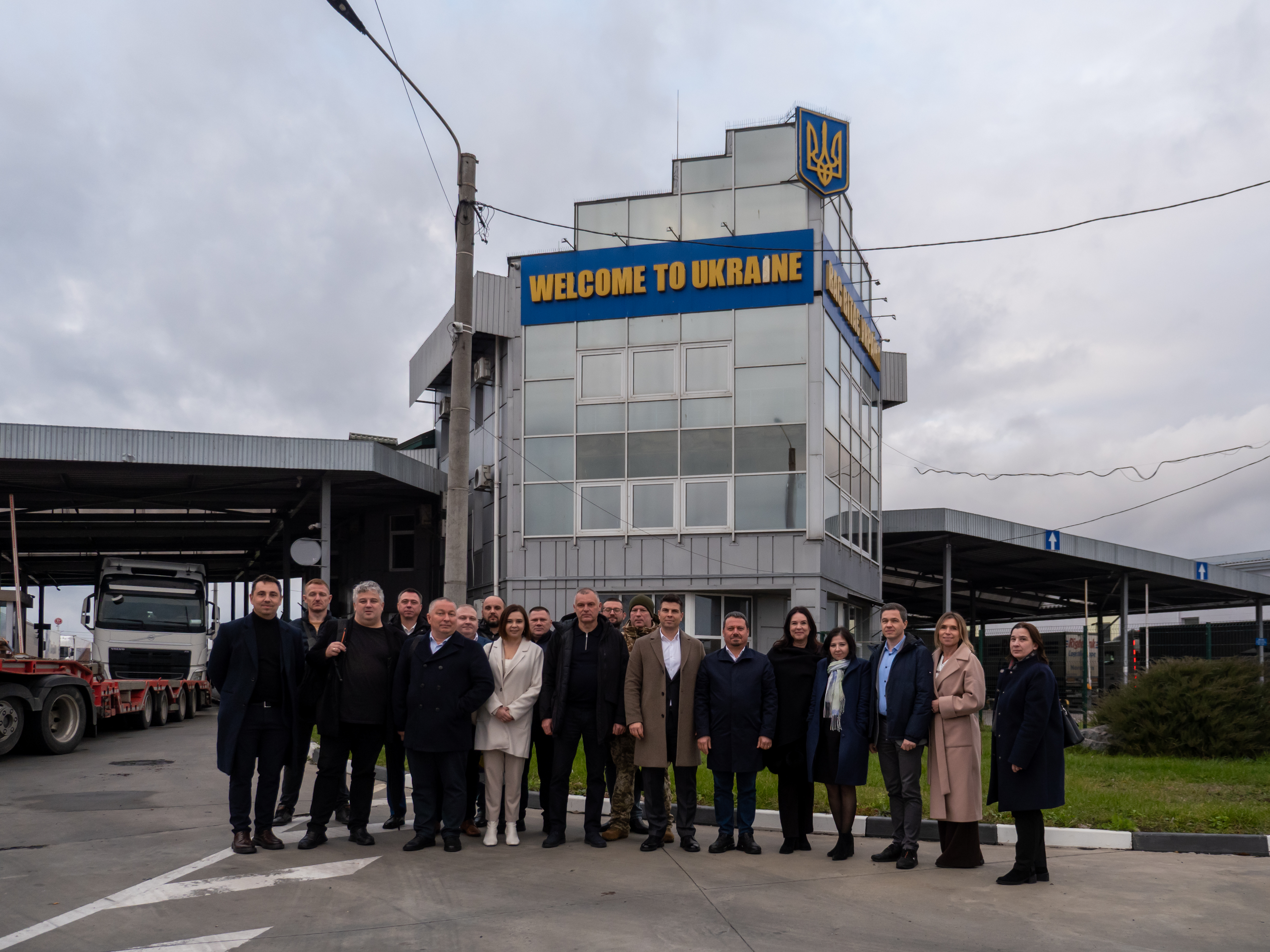On the 21st March, 1910, on the airfield of the Odessa aeroclub, the first Russian certified pilot Mikhail Efimov made several flights on a French airplane Farman in presence of a huge Odessite audience. It was the first public flight of Russian Empire.
At the end of 1903, the first public flight in an biplane, equipped with an internal combustion engine heavier than the whole aircraft, was made by the Americans Wilbur and Orville Wright. The biplane was created and designed by Wright brothers, who owned a business for the production and sale of then very fashionable bicycles.
Since 1906 it became clear that mankind had discovered a new mode of transport, and the West was seized by a real aviation boom. In Russia, many followed with interest the success of aeronautics and did not want to stand aside. Soon, the rapid development of aviation began in the Empire, and at its forefront were St. Petersburg and Odessa.
In Odessa, at the beginning of 1908, a sports society was created, called Odessa Aero Club. His inspirer and first president was the Baron Alexander Kaulbars, then the commander of the Odessa Military District. On the 11st of March 1908 (24th for Western calendar), the constituent assembly of the club, adopted the foundation act. The first paragraph of the document defined the goals of the company:
The development and improvement of aeronautics, the spread of the desire for flying on balloons, airplanes and controlled balloons, scientific experiments and the improvement of the construction of aircraft, as well as the practical training of experienced aeronauts ... during the war, assist the army in operation with all the results of their activities, and therefore in in case of war, the Society and all its members are obliged, upon the first request of the Government, to make available to the Commander-in-Chief all their aircraft and balloon park.
The base camp of the club was the military ground of the Odessa Naval Battalion, an engineering unit created for the preparation of a landing operation in the Dardanelles and the Russian conquer of Constantinople. The entrance fee to the club was 25 roubles, the annual membership fee 30 roubles.

In the first year of the club's existence, 13 hot-air balloon flights were carried out, with the participation of 27 people, including three women. The young Odessa flying club almost immediately began seeking funds for the purchase of the first aircraft. In November 1908, 12,000 roubles were raised to buy an airplane from the French aviation pioneer Gabriel Voisin. In January of the same year, Henri Farman on a biplane of his design had made a successful circular flight of kilometre range.
In March 1909, Voisin’s aircraft arrived in Odessa and was delivered to the base of the Odessa Aero Club, located near the city hippodrome. Unfortunately, no one could make a flight on it, because of design flaws, engine weakness and, finally, the lack of a qualified pilot. Nonetheless, even the opportunity to tear oneself off the ground, for the first time in Russia, and to practice manoeuvring gave invaluable experience to the Odessa aviation enthusiasts. The Club secretary captain Grekov wrote:
The positive side of this first failure was that the apparatus broke down continuously, which enabled the masters, when corrected, to study the components of the apparatus, and this last circumstance was gradually developed by shots of excellent masters who subsequently copied overseas work with "photographic accuracy, and even later - far left it behind them.
"Brief outline of the activities of the Odessa Aero Club from January 1, 1908 to February 1, 1914"
In the autumn of 1909, new aircrafts were ordered in France. Funds for their purchase were allocated by two club members, wealthy Odessa entrepreneurs: Arthur Antonovich Anatra ordered two Bleriot, sending for training his chauffeur named Cattaneo; banker Baron Ivan Spiridonovich Ksidias acquired one Farman, which was supposed to be piloted by the famous pilot Mikhail Efimov.

Mikhail Efimov (a peasant by birth among noblemen) had been trained by the aircraft producer Henry Farman himself at aviation school Murmelon-le-Grand, where he had studied also aircraft engines. Efimov made his first independent flight in France on December 25, 1909 and already on January 21, 1910, passing the exam of the French Aero Club commission, with the diploma number 31. He become the first professional Russian pilot.
The date of the first air show in Russian history was set for the 8th of March. Exactly two years had passed since the constituent assembly of the Odessa Aero Club. The interest in the event was huge, the whole city was hung with huge posters: "... The only flight of the world champion Efimov on an airplane will take place at the racetrack of the Running Society."

There were only 20 thousand seats on the Odessa racetrack prepared for flight, but a huge crowd surrounded the stands and the airfield from all sides. According to various sources, up to 50, maybe even 100 thousand people gathered at the hippodrome to look at Efimov’s flight that day.
The pilot took off five times on the Farman IV airplane with a 50-horsepower Gnom engine, flying around the surrounding area. On the third flight, the president of the Aero Club Anatra, completely amazed by the show, flew with him, thereafter. The main investor of the event, Baron Xidias, took off in the passenger seat. One of the many publications of those days describes this event in such a way:
Efimov proved that he is not only a brilliant aviator, but also a daredevil ... Having risen above the hippodrome ... he flew over the building of the cadet corps, over which he made a risky turn, went to prison ... flashed over its roof, headed past the cemetery outside the city, returned in ten minutes ... Remarkable sharp turns in the air that brought Efimov fame ... Having flown three circles and starting the fourth ... Efimov made a striking beauty sharp in gate and landed at the main stands.
Not only Odessa, but also many other Russian cities' newspapers wrote about the event. Petersburg Leaflet did not hide envy:
Happy inhabitants of Odessa! They had the good fortune of greeting the first Russian aviator, and they were the first to admire his wondrous flights. The day when Efimov made his first flight in Odessa will now become a historic date for Russian aeronautics.

Grand Duke Alexander Mikhailovich, who took care of the development of aviation in Russia, reported on the successful flights in Odessa to the emperor. A few days later, the “Government Gazette†reported that “His Majesty deigned to express gratitude and wish Efimov continued success.â€
Successes were not long in coming. In April, Efimov became the winner of international competitions in Nice, having received 77,000 francs in prize money, which allowed him to pay off his debts and buy his own airplane.
The fate of those people who gave Odessa superiority in Russian aviation will turn out tragically with the Russian Civil War. The destiny of the banker Xidias is lost in revolutionary hard times. Mikhail Efimov will continue his international career, then he will go to war, where he will gain the Order of St. George. After the revolution he will join the Reds and be killed in 1919, in the occupied Odessa by the All- Socialist Union of Republic of Ukraine.
Anatra deployed an aircraft production in Odessa, which reached significant proportions during the World War I (over 2000 workers, with more than 1000 aircraft delivered, including models of his design). After the Red revolution, he was forced to emigrate abroad. In early 1919, left Odessa to Italy on his own airplane, forever. Arthur Antonovich Anatra tragically passed away in his ancestral homeland a few days after receiving news from Odessa about the barbaric looting of the family crypt of the Anatra family during the destruction of the first Christian cemetery. Arthur Antonovich’s father, mother, sisters and brother were buried in the crypt.
History of Odessa Ukraine


















